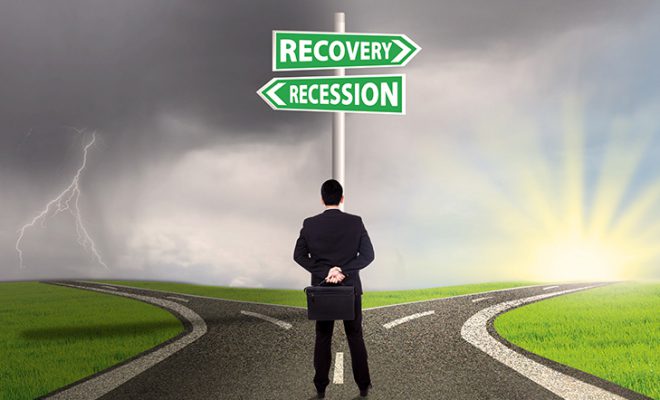Tips for Dealing with Failed Investment Strategies

Failed investment strategies can be very hard to deal with, especially at an age when it is time to reap the benefits of those investments. No matter the age, failure is always disheartening and can cause an enormous financial setback. But on the other hand, it is an undeniable truth and a condition which most people are likely to face at a certain point in their investing journey. It is critical to learn to deal with failures in investment, as this can determine your overall investing success in the long-term. Investment failures are bound to leave you with strong and impactful lessons that could be life-changing. And it is better to start young when you have a lower capital balance, minimal risk, and more capacity to deal with failure.
At this juncture, some tips that will be useful while dealing with failed investment strategies include:
Table of Contents
Take a financial break
A financial break can help you recover from a futile investment. Regardless of whether the failure is caused due to market correction or your lack of understanding of market forces, it is best to temporarily step back and redirect your energies elsewhere, while keeping your other deposits safe. This break does not mean you cannot return to the market after a failure, but instead is aimed at rejuvenation and is supposed to help you come back stronger after you have let the impact of failing subside on its own. During the break, learn to accept the reality and let all financial and emotional implications sink in. Take a break for as long as your desire, because no matter the length, the market is not going anywhere.
Talk to people sailing in the same boat
While this may not prove beneficial for all, it can certainly be uplifting for those who seek social support at the time of failure. When you experience a loss in your investments and are trying to deal with it, it is good to talk to people with similar experiences. You can also reach out to loved ones such as family and friends who can provide you with sound financial advice and the much-needed emotional support. This small tip is directed towards building optimism and helping you recover mentally.
Stay away from all financial media
The worst thing you can do while going through a futile phase is to indulge deep in financial media such as news, podcasts, directives, after-show Q&As, etc. These media telecasts can do more harm than good. They might burn your spirit and leave you with a stamp of failure when you could be gearing up for the next round. The market is unpredictable and affected by unprecedented events of which no one knows the source or the direction forward. Hence, relying on the advice of others might not always be a fruitful idea, especially if you are financially vulnerable. Moreover, it is advisable to not form conclusions based on information provided by the media. Most often the data is predictive rather than factual. The market is a complex mechanism subject to instant changes. It is difficult to justify the past or accurately predict the future. Hence, it is advisable not to pay heed to the media while you are rebuilding your financial enthusiasm.
Look at the more significant, long-term picture
While making investments, the general goal is not to reap short-term benefits but instead have substantial long-term advantages. Hence, going by this principle, one should not be discouraged by day to day failures and instead look at larger goals and expenses such as retirement, college funds, wedding, vehicles, house, etc. The market keeps fluctuating frequently, but essentially, it does prove beneficial for the investor in the long run. Investing is an activity aimed for the future, and it is best if an investor adapts to short-term failures early on. As per a Vanguard report, a balanced investor seeks to reduce the volatility by incorporating some investments that provide income, while the principal grows moderately with short-term fluctuations within a long-term investment horizon. On the other hand, growth-focused investors aim to maximize their income in the long-run by tolerating wide short-term fluctuations within a long investment period. Thus, if you seek to maximize your long-term potential, short-term investment failures should not be too stressful.
Curb the short-term urge
The investment market is always pushing the investor to act now and act fast. Essentially because that is one of the core business model fundamentals it thrives on. Instant reaction or the urge to do something in the short-term is what drives the transaction costs, thereby reducing the overall returns of the investments. Hence, while you are dealing with a failed investment strategy, it is vital to train yourself to not react at the moment and aim for short-term benefits even when you get back from the financial break (you would have initially taken). Anticipating market movements and taking immediate steps to maximize gains often tend to cause errors. This has also been demonstrated by the failure of TAA or Tactical Asset Allocation, which aims to actively balance and adjust asset classes (stocks, bonds, and cash) to maximize returns of a portfolio while minimizing market risks. As per the report published by Morningstar, TAA funds recorded a high growth after the financial crisis of 2008-2009. The assets under this class increased from $18.7 billion in 2008 to $87.1 billion in April 2013, but soon after showed a downward trend. The funds could not maintain the growth trajectory and failed in comparison to other asset allocation strategies such as the Vanguard Balanced Index (VBINX) that does not make tactical adjustments and instead allocates 60% of its assets to U.S. stocks and the rest 40% in the Bloomberg Barclays U.S. Aggregate Float-Adjusted Bond Index.
Redirect Energies on Controllable Events
The last trick which should essentially empower you enough to overcome failed investment strategies is to focus on events that are under your control. There is no point in stressing over factors such as market movements, interest rates, or other investment forces, the direction of which cannot be determined. On the brighter side, you should redirect your focus on events such as your portfolio management, allocation of asset classes, maximizing income, and minimizing taxes, costs, and fees. Moreover, if your current asset distribution includes active funds, you should switch to safer ones to provide for some comfort at this point. In addition to this, you must know your portfolio efficiency, diversification, and other critical factors which, if not ideal, are detrimental to long-term success.
To sum it up
Failures are inevitable, but when you learn to rise above these failures, you increase your chances of achieving greater success. Focus on the long-term and learn to slide by failed investment strategies of the present. You can also take advice from professional financial advisors to revive your portfolio’s potential for the long-term.


















